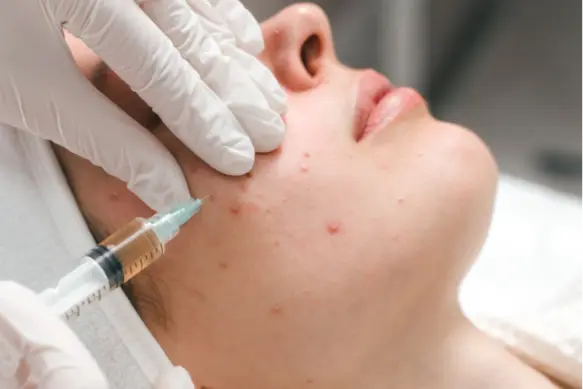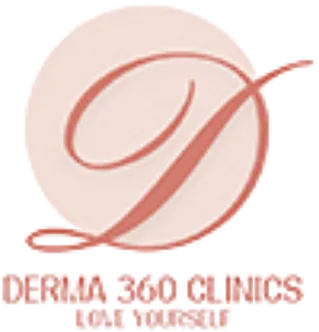Acne Treatment
What is Acne Treatment?
Acne is a common skin condition that occurs when hair follicles under the skin become clogged with oil and dead skin cells. These clogged pores can lead to outbreaks of pimples or lesions, typically on the face, but also on the back, chest, and shoulders. While acne often resolves by the time people reach their thirties, it can persist for some into their forties and fifties.
Available Acne Treatments
-
Microneedling Radio Frequency: This treatment leverages the skin’s natural collagen-producing abilities by using micro-punctures created by needles to stimulate healing. Combined with radiofrequency, it effectively treats moderate to severe acne scars, minimizing downtime and enhancing skin texture without damaging the epidermis.
-
Dermaroller Treatment: A dermaroller uses fine needles to increase collagen production, which aids in reducing acne scars and rejuvenates skin for a smoother, more radiant appearance. It enhances blood supply and activates the skin's healing mechanisms by reaching deeper layers where collagen and elastin are produced.
-
Q-Switched Nd:YAG Laser: This laser treatment uses a specific wavelength to target and fragment pigmentation, addressing spots and scars associated with acne. The energy is absorbed by pigments, helping break them down for a clearer complexion.
-
Chemical Peels: Chemical peels remove the top layer of skin, promoting new, healthier skin growth. Benefits include smoother skin texture, reduced dark spots, and unclogged pores, which can help prevent future breakouts.

Need Help
Frequently Asked Questions about Acne
Here are some commonly asked questions about acne, including triggers, treatment options, and prevention tips.
1. What foods, apart from oily food, can trigger acne?
Foods high in fat, sugar, and dairy, such as milk chocolate, french fries, and sugary drinks, can increase the risk of acne.
2. Can periods lead to acne?
Yes, hormonal changes just before menstruation can increase oil production, leading to clogged pores and breakouts.
3. When should I see a dermatologist for acne?
If home treatments aren’t working or acne is worsening, it's best to consult a dermatologist.
4. Can makeup cause acne?
Yes, some cosmetics can clog pores, leading to acne cosmetica, a type of acne caused by makeup.
5. Should I take oral supplements for acne?
Zinc supplements may help reduce oil production and inflammation, supporting acne management.
6. How long will acne last?
Acne typically begins during puberty and may last 5-10 years, often improving by the early twenties.
7. How can I feel confident even with acne?
Acne is natural; feeling confident despite it is key. Remember, acne doesn’t define your beauty.
8. What are the types of acne?
Common types include whiteheads, blackheads, papules, pustules, and severe acne, each varying in appearance and severity.
What Our Clients Say
Contact Us
Send A Message
If you want to ask anything just fill in the form below and send us.
